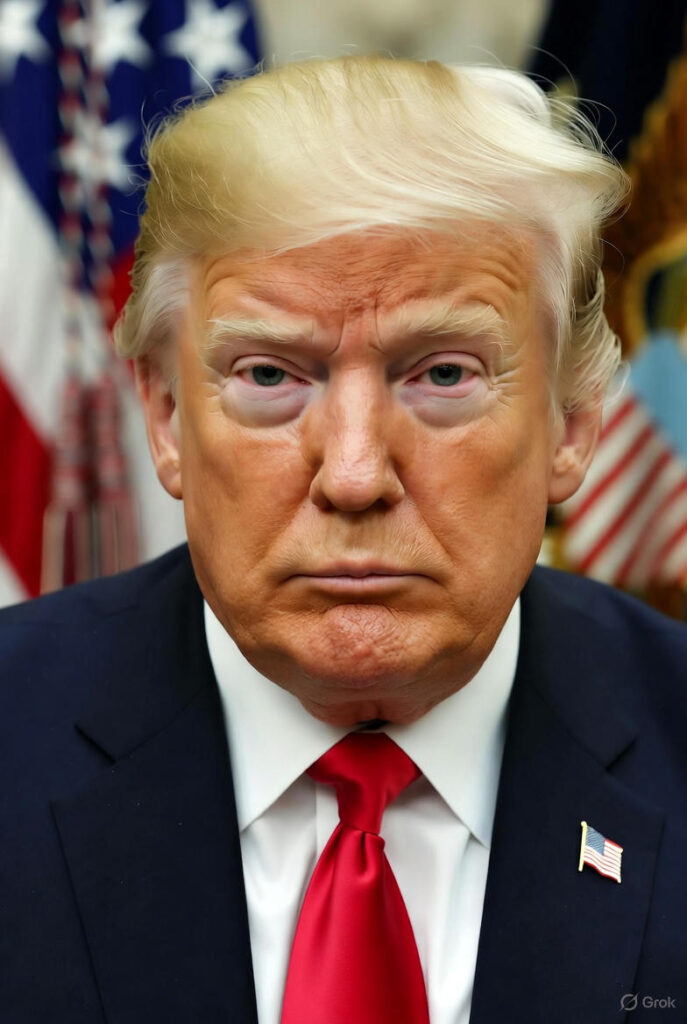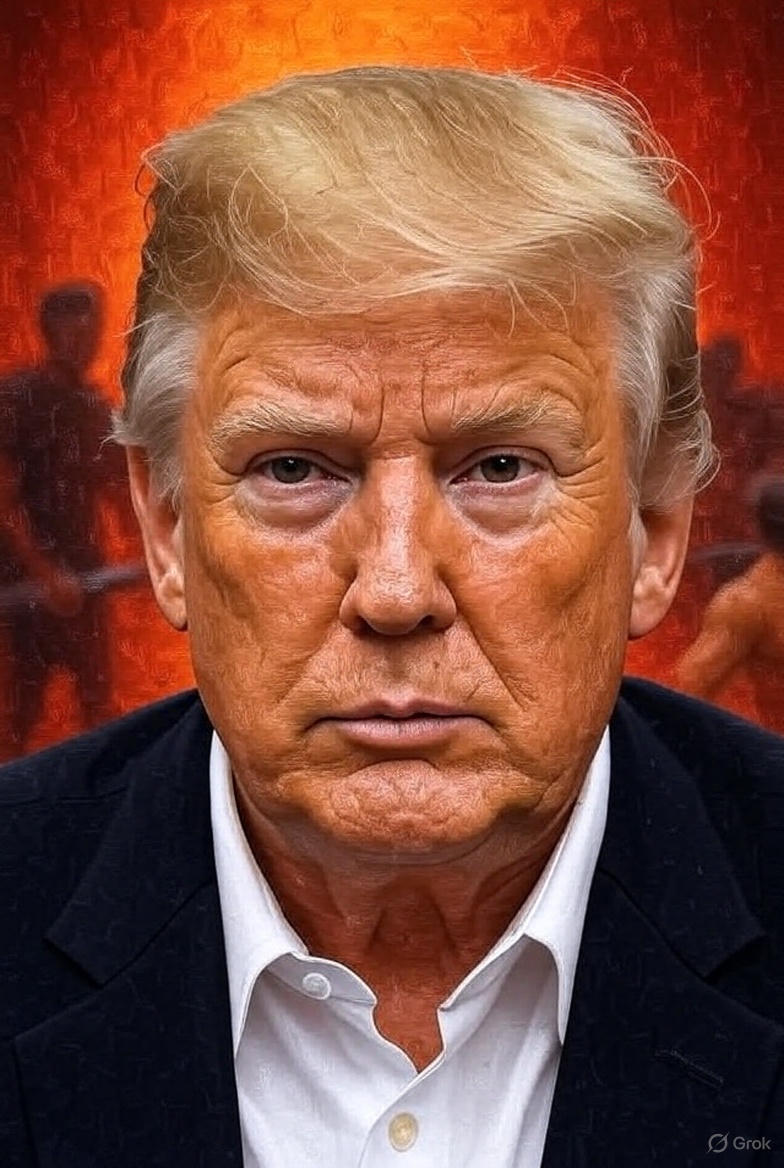Written By Noman, Global Politics Analyst | November 02, 2025 | Global Politics
In a bold escalation, President Trump warns Nigeria of immediate US aid cuts and potential military action amid rising Christian killings. Explore the implications for US-Nigeria relations and global religious freedom
Introduction
In a surprise move, which has raised an uproar across the globe, U.S. President Donald Trump has warned Nigeria that American aid may very well be halted-and military action is not out of the question-if attacks on Christian communities persist. The statement, made during a press briefing at the White House, is perhaps among the strongest foreign policy warnings of 2025. The Nigerian government says that such reports are exaggerated, but these remarks have kindled a firestorm across international media, putting faith, security, and U.S. influence abroad to question.
5 Key Takeaways: What Triggered Trump’s Warning to Nigeria as Aid Cuts and Military Action Loom
The tension arises from repeated reports of violence in northern and central Nigeria, where extremist groups like Boko Haram and ISWAP have targeted civilians for years. Trump cited “credible intelligence” that Christian communities are being systematically attacked, claiming the U.S. “won’t stand by while innocent believers are slaughtered.”
Nigeria is home to over 230 million people, roughly split between Christians and Muslims, and has struggled with sectarian clashes driven by religion, land disputes, and insurgencies for years. Trump framed his statement as one of religious persecution, when experts argue the situation is far more complex.

🇳🇬 Nigeria’s Response: Rejection and Reassurance
In the wake of Trump’s warning to Nigeria, the government in Abuja moved quickly to reject the claims. Officials described Trump’s remarks as “misguided and inflammatory,” insisting that the comments distort the country’s true efforts to fight extremism and protect all citizens equally.
A spokesman from the office of President Bola Tinubu stated that “Nigeria is not a religiously intolerant nation” and emphasized that law enforcement agencies are actively countering terrorism in all forms, without bias toward any faith or group.
The administration also reminded Washington that U.S. cooperation is welcome only under terms that respect Nigeria’s sovereignty. In a statement, the Foreign Ministry warned that Trump’s warning to Nigeria and any suggestion of military action could destabilize an already fragile West African region, harming both nations’ shared security interests.
Analysts say Nigeria’s firm response shows a clear message: while Abuja values its relationship with Washington, it won’t tolerate policies that threaten its autonomy or misrepresent its internal challenges.
The Stakes: Billions in U.S. Aid at Risk
According to USAID, Nigeria receives nearly $900 million in American assistance annually to address health and education programs, as well as counterterrorism. If Trump actually freezes that funding, it would have wide-ranging effects—especially within vaccination drives across rural states.
Analysts warn that if Washington proceeds, this could weaken Nigeria’s counterterrorism capacity and push the country toward alternative partnerships, possibly China or Russia, both of which are expanding their presence in Africa.
🇺🇸 Could the U.S. Really Take Military Action?
What triggered Trump’s warning against Nigeria has become one of the most discussed foreign policy debates of 2025. His declaration to “go in guns blazing if necessary” shocked both allies and critics alike, raising questions about how far Washington is willing to go to defend religious freedom abroad.
Military experts say that direct U.S. intervention in Nigeria would be far from simple. The United States currently operates drone bases and counterterrorism training programs across West Africa — but has no permanent combat presence in the region. Analysts suggest that what triggered Trump’s warning may have been a mix of political pressure, human rights concerns, and an effort to reassert U.S. influence after years of limited engagement in Africa.
A Pentagon source, speaking anonymously to The Washington Post, explained that “military action in Nigeria would require multilateral approval and significant logistical planning — it’s not as simple as flipping a switch.” The source added that the administration’s tone “reflects more of a diplomatic warning than an immediate operational plan.”
Still, the rhetoric surrounding what triggered Trump’s warning could reshape diplomatic relations across the continent, influencing how African nations align themselves geopolitically in 2025. Some fear it could spark new rivalries between pro-U.S. and pro-China blocs within Africa’s growing power dynamic.
A Long History of U.S.–Nigeria Tensions
This is not the first flashpoint between Washington and Abuja. The U.S. under the previous administration of Trump had restricted visa access for Nigerians, citing national security concerns. Tensions also flared over LGBTQ rights, oil contracts, and arms deals.
Still, Nigeria is a key U.S. ally: Africa’s largest economy and a major exporter of crude oil. And analysts suggest that both countries need each other: the U.S. needs Nigeria in terms of regional stability; Nigeria needs the U.S. for investment and military cooperation.
What Happens Next
Backchannels are reportedly open. Sources indicate that U.S. and Nigerian envoys are getting ready for emergency talks to explain Trump’s remarks. Sanctions or the temporary suspension of aid may be on the table, but full military action is still unlikely, observers say.
For the White House, there is a delicate balance: to act on religious violence withoutalienating African partners or reviving anti-American sentiment.
Expert Opinion
“This is classic Trump diplomacy — pressure first, negotiation later,” says Dr. Sarah Langford, a Georgetown University political analyst.
“Religion, however, is a sensitive fault line in Nigeria, and missteps here could set off a serious backlash, not just in Africa but globally.
Key Takeaways
Trump threatened aid cuts, U.S. military action over Christian killings in Nigeria.
Nigeria rejected the claim, saying it protects all faiths equally. Nearly $900 million in U.S. assistance could be frozen. Global reactions span from praise to alarm. The outcome depends upon whether diplomacy or confrontation will win out during the forthcoming days.
At TrendScoopGlobal.com, we bring you the latest stories shaping our world — from breaking politics and technology to culture and global affairs. Stay ahead of the curve with real-time updates, deep insights, and trending news that matter today and define tomorrow


1 thought on “5 Key Takeaways as Trump Warns Nigeria: Aid Cuts and Military Action Loom Over Christian Killings Crisis”